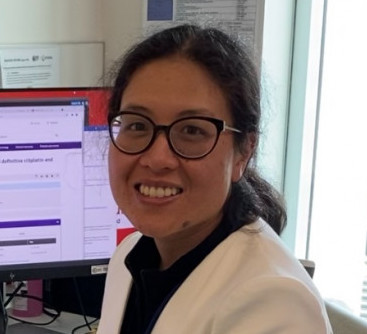Oncologist receives MOGA’s Tattersall award
 Dr Yada Kanjanapan, staff specialist in medical oncology at the Canberra Hospital, has been named as the recipient of the Professor Martin Tattersall Heroes Award.
Dr Yada Kanjanapan, staff specialist in medical oncology at the Canberra Hospital, has been named as the recipient of the Professor Martin Tattersall Heroes Award.
This annual Award from the Medical Oncology Group of Australia (MOGA) seeks to recognise contributions by medical oncologists that honour the spirit, courage and commitment of the first chair of MOGA.
Dr Kanjanapan receives the award in recognition of her work providing outstanding leadership on the role of COVID vaccination for individuals with cancer.
The award will be formally presented at the 2022 MOGA ASM to be held in Cairns on Friday 19 August.
ICI breakthrough for cancer patients needing transplants
Kidney transplant recipients with cancer may not need to stop or reduce immunosuppressive therapy before starting treatment with an immune checkpoint inhibitor, Australian research shows.
Maintaining baseline immunosuppression before treatment with nivolumab in kidney transplant recipients might not affect expected efficacy and might reduce the risk of allograft rejection mediated by immune checkpoint inhibitors, a study conducted by researchers at the Royal Adelaide Hospital found.
Published in Lancet Oncology, their study involved 22 kidney transplant recipients with various incurable locally advanced or metastatic cancers that had progressed despite first-line standard anti-tumour treatment. It showed that a dual combination of transplant anti-rejection drugs and immune checkpoint inhibitors not only reduced organ rejection rates to 12% (from 40-50%) but also eradicated cancer cells in 25% of patients.
Renal specialist at the Royal Adelaide Hospital, Associate Professor Rob Carroll, said the findings were a game changer for kidney transplant patients in whom the rate of cancer is three-times than in the general population.
“The terrible irony is that the immunosuppressants that patients must always take to stop their immune systems attacking their transplants, are also the medicines that stops the immune system getting rid of pre-cancer cells.
“To correct this imbalance, our study tested the efficacy of maintaining baseline anti-rejection drugs (to protect the transplant) and adding immune checkpoint inhibitors (to attack the cancer). It’s a massive advancement for kidney transplant patients; a whole new lease on life,” he said.
Tough times for specialist college trainees
Advocacy for Specialist Medical College Trainees has been boosted via the AMA Council of Doctors in Training (CDT) Trainee Forums, according to the outgoing chair Dr Hash Abdeen.
In his final message the rheumatology trainee said the last two years has been a challenging time for trainees because of the impact of the pandemic on the healthcare system and exam disruptions.
Despite having to communicate and meet virtually for much of the time, he said a restructure of the council with 16 Specialist Medical College Trainee Committee Chairs & Representatives had helped to expand its advocacy.
The issue of trainee wellbeing had also been a priority for advocacy, addressed via the Wellbeing Specialist Interest Group, while the CDT had also contributed to progress in gender equity and flexible training policy.
Dr Abdeen said his successor as CDT Chair Dr Hannah Szewcyzk is an O&G trainee in South Australia and will do a great job over the next two years.